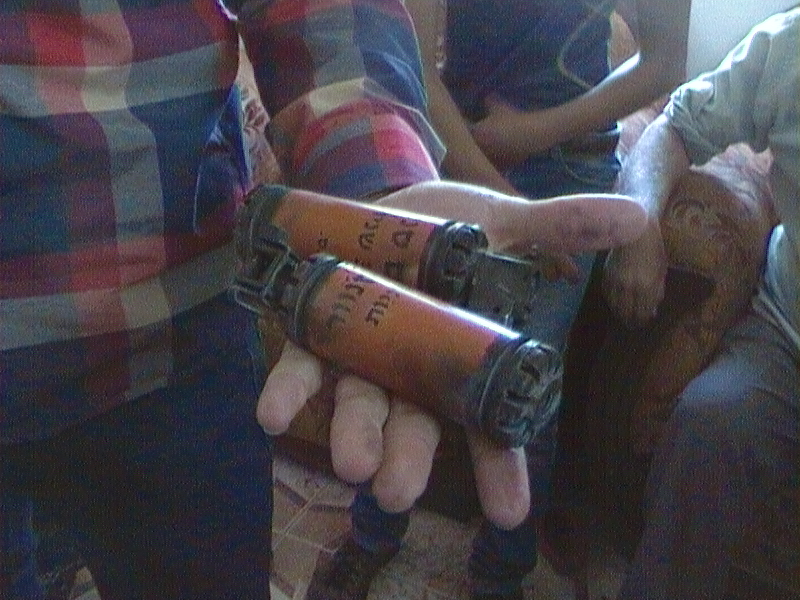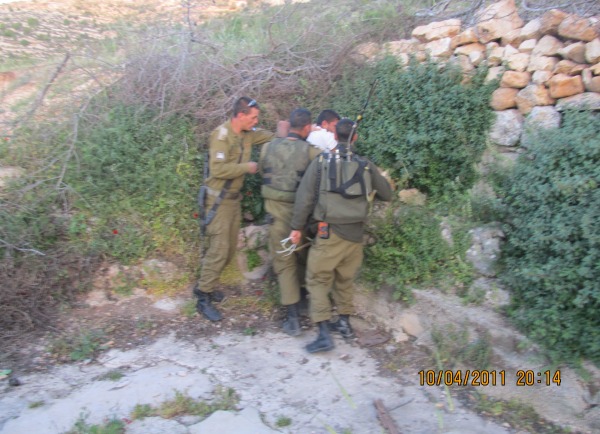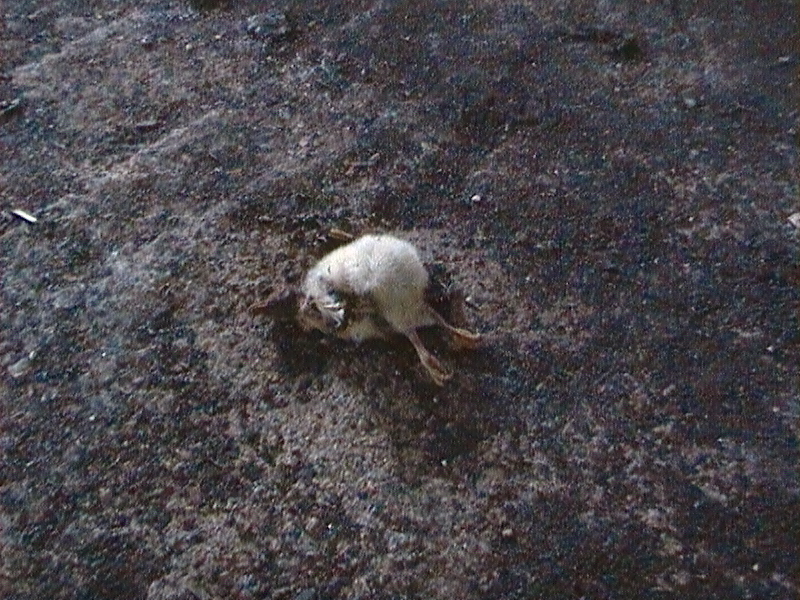Category: Nablus
-
Israeli forces shoot tear gas into houses in Awarta village
20th April 2014 | International Solidarity Movement, Nablus Team| Awarta, Occupied Palestine On the 20th of April, five Israeli jeeps entered the village of Awarta. The Israeli forces broke into four houses and shot several tear gas and stun grenades inside the houses, leaving several families with no other alternative than to sleep elsewhere until…
-
Khan-al-Luban: Israeli army attack
20th April 2014 | International Solidarity Movement, Nablus Team| Khan al-Luban, Occupied Palestine On Monday 21 April 2014 two International Women’s Peace Service [IWPS] volunteers were playing uno [a card game] outside with two children of the Abu Jamal family in Khan al-Luban, close to the Nablus-Ramallah road. Their elder brother Jimmy was plastering the bathroom and their…
-
Settlers set fire to Palestinian chicken farm
20th April 2014 | International Solidarity Movement, Nablus Team| Madama, Occupied Palestine On Friday 18th April, during the night in the village of Madama, settlers from a nearby illegal settlement entered a Palestinian farm and sat fire to a newly built chicken house. The damage totaled $12,500 for the 3,500 chickens and their food, as…



